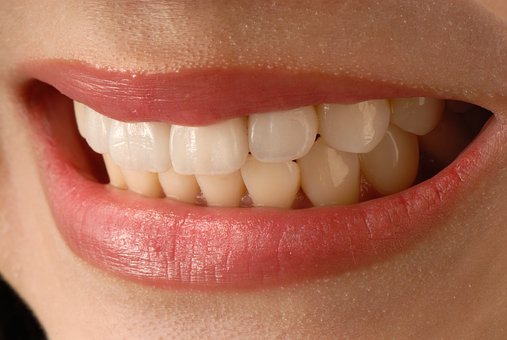Dental care is essential for everyone, but individuals with special needs often face unique challenges when it comes to receiving dental treatment. Special needs encompass a broad spectrum of conditions, including physical, developmental, behavioral, and cognitive disabilities. These individuals may require extra support, accommodation, and sometimes sedation to ensure they can undergo necessary dental procedures safely and comfortably. This article explores the importance of sedation dentistry for patients with special needs, the considerations involved, and how dental professionals can provide effective care.
Understanding Special Needs in Dental Care
Special needs can impact dental care in various ways:
- Physical Limitations: Some individuals may have physical disabilities that affect their ability to sit still or cooperate during dental procedures.
- Developmental Disabilities: Conditions such as autism spectrum disorder (ASD) or intellectual disabilities can affect communication and behavior, making dental visits challenging.
- Behavioral Issues: Anxiety, fear, sensory sensitivities, or challenging behaviors may make it difficult for individuals to tolerate dental treatment.
- Medical Conditions: Certain medical conditions or medications may require special considerations during dental procedures.
Challenges Faced by Patients with Special Needs
For patients with special needs, visiting the dentist can be overwhelming or even frightening. Common challenges include:
- Sensory Sensitivities: Individuals may be sensitive to lights, sounds, or touch sensations in the dental office environment.
- Communication Barriers: Difficulty communicating pain or discomfort, understanding instructions, or expressing fear or anxiety.
- Behavioral Issues: Resistance to sitting in the dental chair, fear of instruments, or inability to cooperate due to anxiety or sensory overload.
- Medical Complexity: Co-existing medical conditions or medications that affect dental treatment planning and anesthesia considerations.
The Role of Sedation Dentistry
Sedation dentistry plays a crucial role in addressing these challenges by providing a means to manage anxiety, minimize discomfort, and facilitate safe treatment for patients with special needs. The goals of sedation in this context include:
- Reducing Anxiety: Sedation helps calm nerves and reduce anxiety associated with dental visits.
- Enhancing Cooperation: By inducing relaxation, sedation can improve cooperation and ease of treatment.
- Improving Safety: Sedation allows dental procedures to be performed safely and effectively, minimizing the risk of injury or complications due to uncontrolled movements or behaviors.
- Facilitating Comprehensive Care: Sedation enables dentists to perform necessary treatments, including cleanings, fillings, and extractions, which may otherwise be challenging for the patient to tolerate.
Types of Sedation Used for Patients with Special Needs
The choice of sedation depends on factors such as the patient’s medical history, level of anxiety, and the complexity of the dental procedure. Common types of sedation used for patients with special needs include:
- Nitrous Oxide (Laughing Gas):
- Overview: Nitrous oxide is a mild sedative administered through a mask over the nose. It induces a sense of relaxation and euphoria.
- Benefits: It is quick to administer, reversible, and allows patients to remain conscious and responsive during treatment.
- Considerations: Nitrous oxide is suitable for patients with mild to moderate anxiety or sensory sensitivities. It may not provide sufficient sedation for patients with severe anxiety or those requiring extensive procedures.
- Oral Sedation:
- Overview: Oral sedatives, such as diazepam or triazolam, are taken in pill form before the dental appointment.
- Benefits: Oral sedation can provide moderate sedation, helping patients relax and potentially inducing partial amnesia about the procedure.
- Considerations: It requires careful dosing based on the patient’s weight and medical history. Patients must be accompanied by a caregiver and should avoid driving after the appointment due to lingering sedative effects.
- Intravenous (IV) Sedation:
- Overview: IV sedation involves administering sedatives directly into the bloodstream through an intravenous line.
- Benefits: IV sedation provides a deeper level of sedation than oral medications, making it suitable for patients with severe anxiety or extensive treatment needs.
- Considerations: It requires specialized training and monitoring. Patients need post-procedure supervision and must arrange transportation due to residual sedative effects.
- General Anesthesia:
- Overview: General anesthesia renders the patient unconscious, often used for patients with profound special needs or undergoing complex dental surgeries.
- Benefits: It allows for complete relaxation and immobilization during procedures, ensuring patient safety and comfort.
- Considerations: General anesthesia involves significant risks and requires a controlled medical environment with an anesthesiologist or nurse anesthetist present. Recovery may take several hours, and post-operative monitoring is essential.
Considerations for Providing Sedation to Patients with Special Needs
When administering sedation to patients with special needs, dental professionals must consider several factors to ensure safe and effective care:
- Comprehensive Assessment: Conducting a thorough medical and dental evaluation to understand the patient’s needs, medical history, and current medications.
- Individualized Treatment Plan: Tailoring the sedation approach based on the patient’s specific condition, level of anxiety, and the complexity of the dental procedure.
- Communication Strategies: Using clear, simple language and visual aids to enhance understanding and reduce anxiety.
- Behavior Management Techniques: Implementing behavior guidance techniques such as Tell-Show-Do, desensitization, or distraction techniques to foster cooperation.
- Collaboration with Caregivers: Involving caregivers or support professionals in the treatment planning process and post-operative care.
Benefits of Sedation Dentistry for Patients with Special Needs
- Improved Access to Care: Sedation enables patients with special needs to receive necessary dental treatment that might otherwise be challenging or impossible.
- Enhanced Patient Experience: Reducing fear and discomfort, promoting a positive dental experience, and potentially decreasing future anxiety about dental visits.
- Prevention of Oral Health Issues: Facilitating routine preventive care and timely treatment of dental problems, which is crucial for maintaining oral health and overall well-being.
Conclusion
Sedation dentistry in Plano is a valuable tool for overcoming the challenges faced by patients with special needs when seeking dental care. By offering a range of sedation options tailored to individual needs and circumstances, dental professionals can ensure safe, effective, and compassionate treatment. Collaboration between caregivers, dental providers, and medical professionals is essential to optimize dental outcomes and improve the quality of life for patients with special needs. Through careful assessment, planning, and implementation of sedation techniques, dental practices can create inclusive environments where all patients can access the oral health care they deserve.




